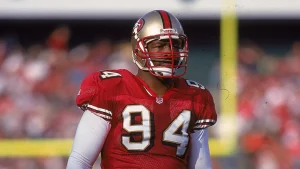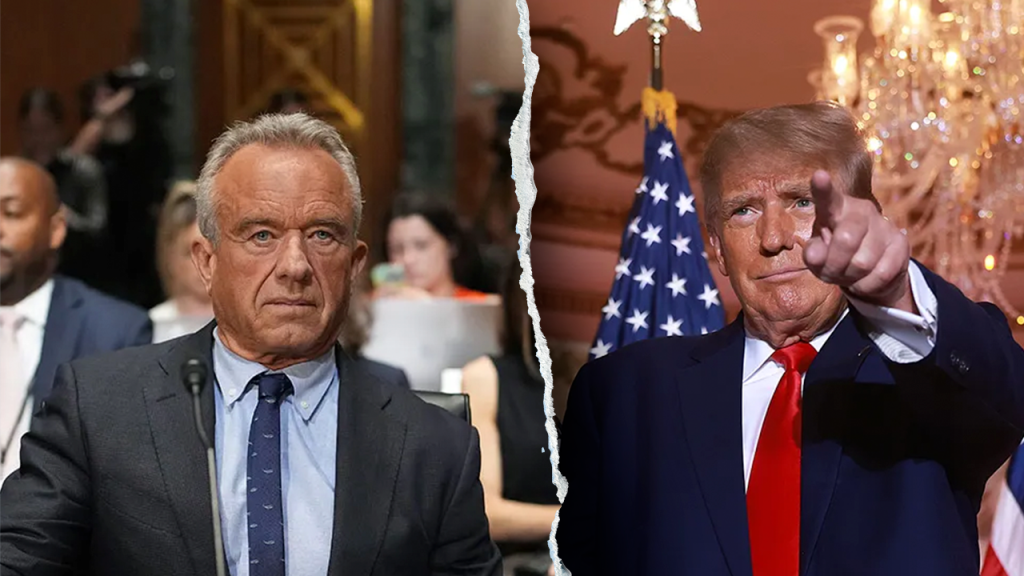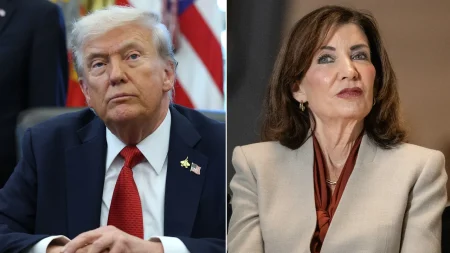Trump Stands By Robert Kennedy Jr. Amid Senate Grilling on Vaccine Policies
President Donald Trump expressed support for Health and Human Services Secretary Robert Kennedy Jr. following a contentious Senate hearing, telling reporters, “I like the fact that he’s different.” During a dinner with technology industry leaders at the White House, Trump acknowledged he hadn’t watched the hearings but spoke highly of Kennedy’s character. “He’s a very good person,” Trump remarked. “He means very well. And he’s got some little different ideas. I guarantee a lot of the people at this table like RFK Jr., and I do, but he’s got a different take, and we want to listen to all of those takes.” The President emphasized that Kennedy’s non-standard approach to health and vaccines might be valuable given current health challenges in America and globally.
Kennedy faced fierce criticism during his testimony before the Senate Finance Committee, particularly from Democratic senators who questioned his views on vaccines and public health. Senator Ron Wyden of Oregon delivered perhaps the most scathing critique, accusing Kennedy of putting children “into harm’s way” with his policies. “This is about kids being pushed into harm’s way by reckless and repeated decisions to get scientists and doctors out of the way and allow conspiracy theories to dictate this country’s health policy,” Wyden stated. The Senator further challenged Kennedy by asking “how many preventable child deaths are an acceptable sacrifice for enacting an agenda that I think is fundamentally cruel and defies common sense.” The heated exchange highlighted the deep divisions over Kennedy’s controversial health positions.
In response to these accusations, Kennedy countered by questioning Wyden’s own record during his lengthy tenure in office. “Senator, you’ve sat in that chair how long? Twenty, 25 years, while the chronic disease of our children went up to 76%. And you said nothing,” Kennedy retorted. He further noted that infant mortality has increased in the United States for the first time in two decades, attributing this rise not to his recent appointment but to policies implemented during the Biden administration. Kennedy’s forceful defense represented his broader stance that the conventional health establishment has failed to address troubling trends in American public health, suggesting that his “different” approach might be necessary to reverse these patterns.
Vice President JD Vance joined in defending Kennedy, offering a blunt assessment of the Senate hearing on social media. “When I see all these senators trying to lecture and ‘gotcha’ Bobby Kennedy today all I can think is: You all support off-label, untested, and irreversible hormonal ‘therapies’ for children, mutilating our kids and enriching big pharma,” Vance wrote on X (formerly Twitter). “You’re full of s— and everyone knows it.” Kennedy reposted the vice president’s message with gratitude, writing, “Thank you @JDVance. You put your finger squarely on the preeminent problem.” This exchange demonstrated the Trump administration’s unified defense of Kennedy despite the controversies surrounding his appointment and views.
The Senate hearing came amid growing opposition to Kennedy within the Department of Health and Human Services itself. Just one day before his testimony, over 1,000 current and former HHS employees signed a letter calling for Kennedy’s resignation. Independent Senator Bernie Sanders of Vermont also joined those demanding Kennedy step down. This internal resistance highlights the unprecedented nature of Kennedy’s appointment and the challenges he faces in implementing his vision at the department. The resistance from career staff and political opponents suggests Kennedy may struggle to advance his agenda without significant changes to department personnel and culture.
The contentious hearing reflects broader debates about public health policy in America, particularly regarding vaccination policies. Kennedy’s appointment signals the Trump administration’s willingness to challenge conventional health wisdom and institutions, potentially reshaping federal approaches to public health. As the administration moves forward, Kennedy’s tenure at HHS will likely remain controversial, with supporters viewing him as a necessary disruptor of a flawed system and critics fearing dangerous consequences from what they see as science denialism. The deep divisions exposed in the hearing reveal not just differences in policy preferences but fundamentally divergent views on the nature of scientific expertise, public health priorities, and the proper role of government in healthcare decisions.















